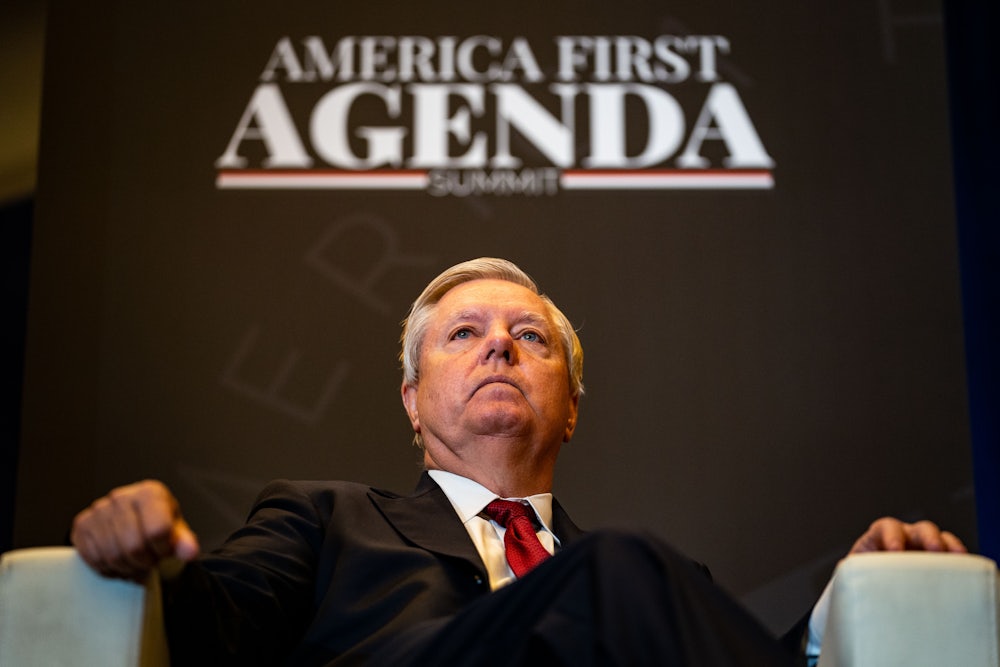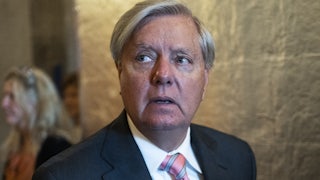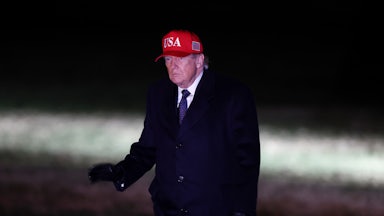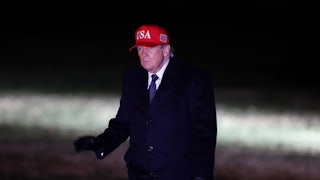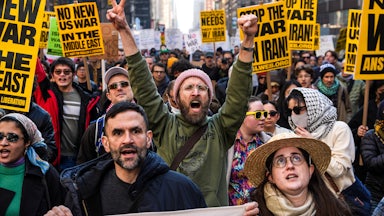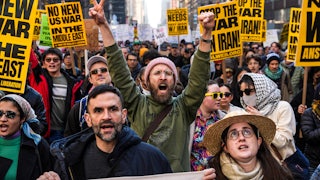In responding to Fulton County District Attorney Fani Willis’s attempt to question him as part of her investigation of President Trump’s efforts to overturn the 2020 election in Georgia, South Carolina Senator Lindsey Graham has brought a relatively unknown provision of the Constitution into the public eye. According to Graham, he shouldn’t have to testify because of the Constitution’s Speech or Debate Clause, which provides that “for any Speech or Debate in either House,” senators and representatives “shall not be questioned in any other Place.”
On September 1, U.S. District Court Judge Leigh Martin May rejected Graham’s argument that he doesn’t have to testify, concluding that much of the testimony that Willis seeks is fair game. The Eleventh Circuit Court of Appeals is reviewing her ruling now, and its decision could have huge implications not only for Graham but for any member of Congress who might use the Speech or Debate Clause as a shield for misconduct. Fortunately, May is right, and the court of appeals should agree.
As others have observed, and May also explained, the Speech or Debate Clause cannot be used to prevent questioning about activities that are not “related to the due functioning of the legislative process.” This limit is grounded in Supreme Court precedent, which should be enough to resolve the case at this stage. But if Graham or others invite the Supreme Court to take up the issue and revisit its own precedent, the result should be the same, because the same limit is required by the text and history of the Speech or Debate Clause.
The Speech or Debate Clause was based on Article 9 of the English Bill of Rights, which provides “that the freedom of speech and debates or proceedings in Parliament shall not be impeached in any court or place out of Parliament.” As legal scholars have explained, Article 9 has its roots in 500 years of struggle between Parliament and the English crown, which motivated Parliament to protect its proceedings from royal intervention. In the 1620s, for example, members of Parliament questioned King James I about a proposed alliance with Spain. James responded by reprimanding the “fiery and popular pursuits of some of the House of Commons” and threatening to “punish” lawmakers with libel charges. The House of Commons answered with a statement of protest about its freedom of speech. The King’s response? As Professor Josh Chafetz describes, King James sent for the journal of the Commons and tore the statement of protest from its pages. Then he dissolved Parliament and imprisoned its most prominent members in the Tower of London.
The struggle continued until 1689, when Parliament passed the Bill of Rights and included an article protecting lawmakers’ “Speech and Debates” from inquiry.
When the Framers of our Constitution drafted our nation’s charter roughly 100 years later, they included a clause that is almost identical to its British counterpart. The few shreds of published debate about the clause suggest that the Framers hoped it would preserve open and honest debate in Congress. As James Wilson, a delegate to the constitutional convention and one of George Washington’s first nominees to the Supreme Court, remarked, the “fullest liberty of speech” would enable lawmakers to “discharge the publick trust with firmness and success.” In his Manual of Parliamentary Practice, Thomas Jefferson echoed the same theme, referencing the House of Commons’s letter of protest to King James, which described Parliament’s need to “propound, treat, reason, and bring to conclusion” all “Parliament business.” In other words, the Framers adopted the clause to ensure that members of Congress would not be punished for official legislative actions and could focus on representing the people.
But the clause was never understood to protect members of Congress for anything they might say or do, simply because of the office they held. As Thomas Jefferson explained when describing lawmakers’ immunity from arrest, the Framers wanted to ensure that “the laws shall bind equally on all”—especially “those who make them.” Charles Pinckney, a South Carolina delegate to the constitutional convention, said the same: The Framers “expressly limited” Congress’s privileges, he explained, to make sure that legislatures could not seek “shelter from the operation of laws equally affecting all.”
For this reason, the Framers specifically limited the reach
of the Speech or Debate Clause to a lawmaker’s legislative acts.
The clause’s meaning is clear from its text itself. Remember that the clause
prevents questioning of “any Speech or Debate in either House,” not
everywhere. By limiting the clause’s protections to statements made in the
houses of Congress, the Framers—in Jefferson’s words—ensured that legislators would be
protected from questioning only “for things done in the House in a
Parliamentary course,” and that this protection would “not exceed the bounds
and limits of [a lawmaker’s] place and duty.”
Early American jurists carefully guarded these limits. In Coffin v. Coffin, the earliest case about the issue, a Massachusetts court interpreted the state’s counterpart to the Speech or Debate Clause in a libel suit against a state representative. The court held that the clause embraced statements made by the representative “in the discharge of his official duty,” but did not cover his private conversation on the House floor after a vote, because the legislator was not acting in the “character of a representative” in the conversation. For the court, this was an important distinction: Interpreting the Speech or Debate Clause to cover private acts would extend it “farther than was intended by the people.”
As this history makes clear, the Speech or Debate Clause doesn’t protect Senator Graham from questioning about any statement he’s ever made, only statements he made “in the character of a representative.” And as Judge May determined, at least with respect to any statements made to pressure state officials to throw out votes, Graham wasn’t acting as a legislator when he made them.
Furthermore, using the Speech or Debate Clause to shield inquiry into election manipulation would extend it further than “we the people” ever intended. The Speech or Debate Clause, as Thomas Jefferson once observed, was enacted to protect Congress from the “encroachments and usurpations” of other branches of government—not to allow lawmakers to encroach on the electoral process. And using Graham’s logic, lawmakers could escape investigations into all sorts of matters—including electoral misdeeds, corruption, and the like—making it impossible for the law to “bind equally on all.”
The arguments Graham is making are at odds with the text and history of the constitutional provision on which he’s relying, as well as Supreme Court precedent. They should be rejected, and he should have to testify—that would be a good thing for the pursuit of the truth and our democracy.
